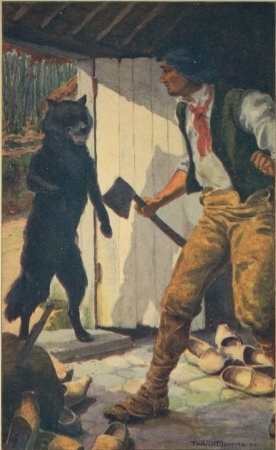What do you think?
Rate this book


128 pages, Paperback
First published January 1, 1857
«...Tu hai un anello d’argento, io uno d’oro; scambiamoceli. Come vedi, è un baratto che ti conviene».
«Ah», disse Thibault, «Accetto».
Fecero lo scambio degli anelli.
«Bene», disse il lupo, «eccoci sposati»
